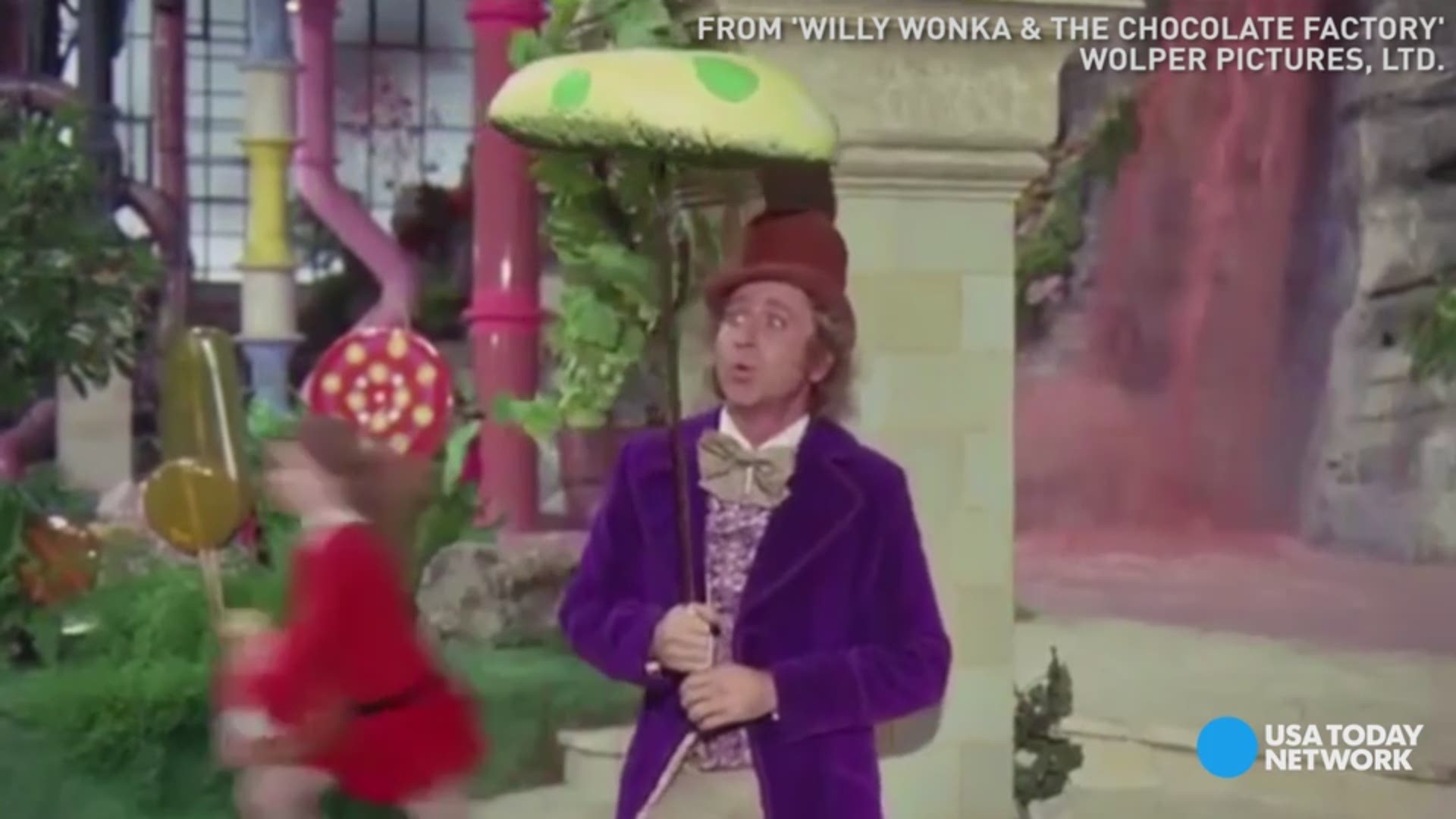Gene Wilder, the rubbery-faced star of Willy Wonka & the Chocolate Factory and comedy classics from Mel Brooks, has died, according to his nephew and his agent. He was 83.
Wilder died Monday at his home in Stamford, Conn.,of complications from Alzheimer's disease, according to a statement from his nephew, Jordan Walker-Pearlman, issued via Wilder's agent, David Shapira, to USA TODAY.
"It is with indescribable sadness and blues, but with spiritual gratitude for the life lived that I announce the passing of husband, parent, and universal artist Gene Wilder, at his home in Stamford, Conn.," Walker-Pearlman said in the statement.
"It is almost unbearable for us to contemplate our life without him. The cause was complications from Alzheimers Disease with which he co-existed for the last three years. The choice to keep this private was his choice, in talking with us and making a decision as a family."
Wilder was unforgettably funny in such classics as The Producers, Young Frankenstein and Blazing Saddles, his frizzy hair enveloping his head like a halo, his voice rising to a shriek when the role called for panic. And his roles usually did.
He was a specialist at playing panicked characters caught up in schemes that only a madman such as Brooks could devise, whether reviving a monster in Young Frankenstein or bilking Broadway in The Producers.
But he also knew how to keep it cool as the boozy gunslinger in Blazing Saddles and as the charming candy man in the children's favorite Willy Wonka & the Chocolate Factory.
"Gene Wilder, one of the truly great talents of our time is gone. He blessed every film we did together with his special magic. And he blessed my life with his friendship. He will be so missed," Brooks said in a tweet.
Gene Wilder-One of the truly great talents of our time. He blessed every film we did with his magic & he blessed me with his friendship.
— Mel Brooks (@MelBrooks) August 29, 2016
Wilder was nominated twice for Oscars, for best supporting actor in The Producers in 1969, and for best adapted screenplay with Brooks for Blazing Saddles in 1975. He also won an Emmy in 2003 for outstanding actor in a guest role for Will & Grace.
Wilder also was known for the tragic death of his third wife, actress and Saturday Night Live comedian Gilda Radner, with whom he starred in three films. After she died of ovarian cancer in 1989, he began promoting cancer awareness and treatment, helping to found the Gilda Radner Ovarian Cancer Detection Center in Los Angeles. He also co-founded Gilda's Club, a support group to raise cancer awareness.
There's a big hole in Comedy's heart with the loss of Gene Wilder today. RIP Willy Wonka.
— Larry Wilmore (@larrywilmore) August 29, 2016
His nephew's statement said towards the end of his life, Wilder continued to enjoy art, music, and kissing his "leading lady" of the last 25 years, his fourth wife, Karen Boyer, who survives him.
"He danced down a church aisle at a wedding as parent of the groom and ring bearer, held countless afternoon movie western marathons and delighted in the company of beloved ones," the statement continued. "He passed holding our hands with the same tenderness and love he exhibited as long as I can remember."
One of his favorites, Ella Fitzgerald, was playing on the music speakers as he was dying, the statement said. "She was singing Somewhere Over The Rainbow as he was taken away," the statement concluded.
Shortly after Radner died, Wilder was interviewed by Gannett News Service and talked about what acting meant to him. He said it was an artistic process but also a form of self-revelation. He said his analyst once said that acting was "better than running naked in Central Park.
"They're both exposing yourself. But for one, you get arrested; for the other, you get paid. I do have this need to expose myself, to reveal some terrible — or wonderful — secret I can't wait to show the world," he said.
"I can remember when I was 11. My sister was 15 and she did a drama recital. I sat in the audience and saw everyone watching her in silence. You could have heard a pin drop. I thought, `That must be the most powerful feeling on earth.' And it was."

